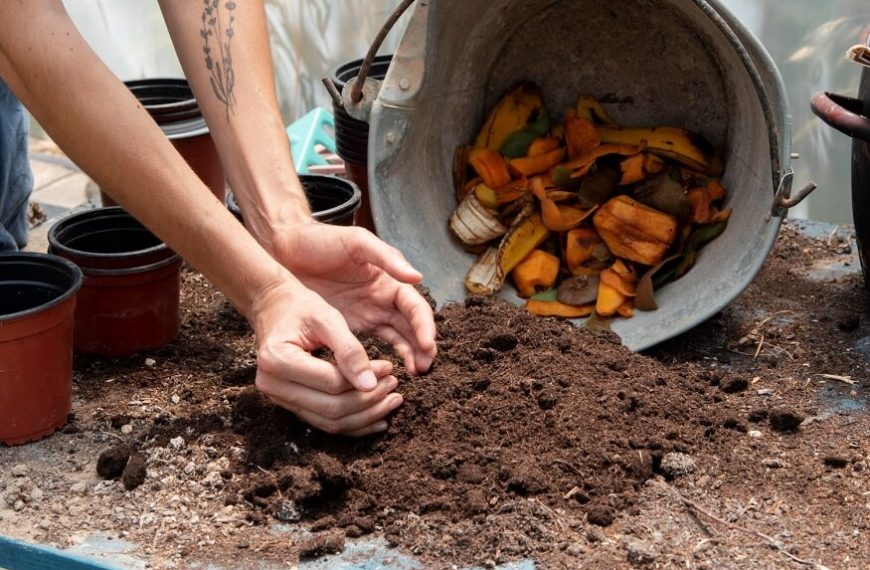In the modern day, imparting the importance of sustainability and environmental responsibility to our kids is of utmost significance. Composting stands out as a highly practical and enjoyable method to instil these principles. This blog article, customised for our youthful Indian readers, delves into the fascinating realm of composting for children, emphasising on the importance of composting, intriguing facts, benefits of composting for kids and the step-by-step process of crafting a DIY compost bin for kids
What is Composting?
Composting is a fascinating process, akin to a natural magic trick, where everyday kitchen scraps are transformed into a treasure for the Earth. The first step in this process is gathering organic trash, which includes eggshells, coffee grounds, vegetable leftovers, and fruit peels. Instead of ending up in the trash, these materials are collected and put in a compost pile or bin. Over time, these scraps undergo a remarkable change. They break down and decompose, thanks to the diligent work of microorganisms, creating compost. This compost is a rich, nutrient-dense soil amendment, teeming with life and nourishment. When added to gardens or plants, it enriches the soil, helping to grow healthier, more robust plants. Composting is a cycle of renewal that showcases the beauty of nature’s processes.
Importance of composting
Composting isn’t just a messy, engaging activity for children; it’s a cornerstone of environmental sustainability. It educates children on the consequences of waste on our planet. They witness firsthand how organic waste can be repurposed, minimising landfill contributions.
Understanding that landfills emit substantial quantities of methane, a potent greenhouse gas driving climate change, is vital. Composting’s importance stems from its capacity to curtail methane emissions, a pivotal action in addressing the challenge of global warming.
Additionally, composting offers kids a glimpse into the fascinating world of ecosystem cycles. It demonstrates how waste can return to the earth, nurturing new life. Through composting, children transform into active participants in environmental protection, acquiring valuable lessons in environmental responsibility.
Composting Facts for Kids
Compost Superheroes: The real heroes of composting are the microorganisms, such as bacteria and fungi, and small creatures like insects and worms. These tiny workers collaborate to break down your food scraps. They munch on the scraps, digesting them and converting them into compost.
Time Travelers: The composting process is a journey through time. Depending on the materials used and conditions like temperature and moisture, it can take anywhere from a few weeks to a few months for your scraps to fully decompose into compost.
Nature’s Recyclers: Composting is an excellent example of nature’s recycling system. It’s a process that turns unwanted scraps into valuable food for the Earth, enriching the soil and supporting new plant growth.
Materials Needed
A medium-sized plastic bin with a lid (recycled bins are great!)
Drill or sharp tool for making holes
Old newspapers or dry leaves
Soil
Kitchen scraps (fruit peels, vegetable scraps, coffee grounds, etc.)
Steps to Create Your Compost Bin
Punch Holes: First, with the help of an adult, make small holes in the lid and sides of your bin for air circulation.
Layering: Start by laying some old newspapers or dry leaves at the bottom. This helps absorb any extra moisture.
Add Soil and Scraps: Add a layer of soil, then your kitchen scraps. Repeat these layers until your bin is about three-quarters full.
Location: Place your bin in a shady spot. Too much sun can dry out your compost.
Maintenance: Regularly turn your compost with a shovel or stick to help the decomposition process.
Patience is Key: Wait and watch as your scraps magically turn into compost!
Benefits of Composting for Kids
Environmental Awareness: Composting instils a deep understanding of environmental issues in children. It teaches them about the crucial role they play in waste reduction and the importance of sustainable living.
Science in Action: Composting offers a hands-on science lesson, allowing kids to observe decomposition, a fundamental ecological process. They learn about the life cycle of organic matter and the role of decomposers in the ecosystem.
Responsibility: Managing a compost bin is a great way for children to learn about responsibility and commitment. They see the results of their care and effort as their waste turns into compost.
Healthy Eating: Children who engage in composting often develop a keener interest in what they eat. They become more inclined towards healthy eating and understand the connection between the food they consume and the natural world.
The Art of Composting: A Creative Journey for Kids
Composting can be a creative and artistic journey for children, offering a unique blend of science and creativity. As kids layer different materials in the compost bin, they learn about the balance of ‘greens’ and ‘browns,’ understanding how different materials decompose. They can experiment by adding different types of food scraps and observing the changes over time. This hands-on activity sparks curiosity and encourages children to think creatively about reuse and recycling.
Community Composting: Building Connections and Fostering Teamwork
Composting can also be a communal activity, bringing together children, families, and communities. Schools and neighbourhoods can establish community composting projects where children work together, learning the value of teamwork and community involvement. Such projects teach children about collective responsibility towards the environment and the power of collaborative efforts to achieve sustainable goals. They learn to share responsibilities, communicate effectively, and contribute to a larger cause. Community composting projects can also be a platform for cultural exchange and building social connections as families share composting tips and gardening advice and celebrate the fruits of their labour together.
Composting – A Step Towards a Greener Tomorrow
Composting for kids is not just about turning food scraps into compost; it’s about nurturing young minds to be conscious and caring about the environment. It’s an enjoyable, educational experience that instils a sense of responsibility and a love for nature.
At EuroKids, we believe in integrating such sustainable practices into our curriculum, fostering environmentally conscious and responsible individuals from a young age. Our programmes are designed to make learning fun and meaningful, ensuring that our kids grow up to be the change-makers of tomorrow.















